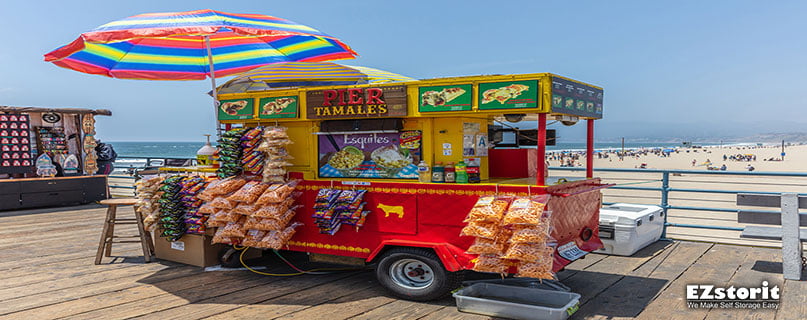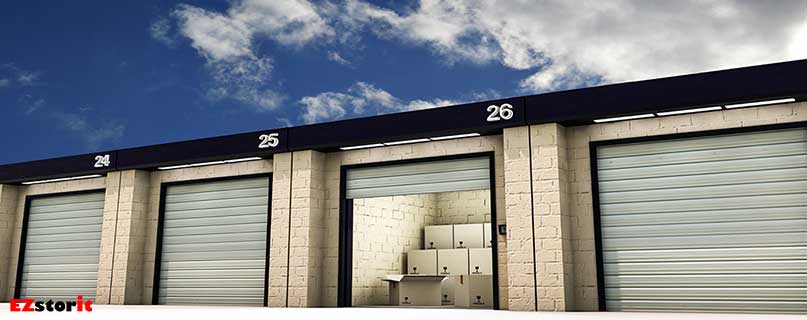Nov
08
Dealing With an Emergency? Here's What to do With Your Belongings
08

If you're dealing with an emergency, or you need to prepare for the possibility of one, you want to be sure what's going to happen to your belongings. Some things you have in your home might not be that important to you on a sentimental level, and your homeowner's insurance would pay to replace them.
But what about all the belongings that really matter? You don't want to lose important documents, family pictures, and expensive or sentimental items that wouldn't be easy to replace. Knowing what you'll do with them in an emergency is one of the best ways to have peace of mind. Here's what to consider, so you'll be prepared.
Get Ready for the More "Common" Emergencies
A lot of emergencies are common, even if they aren't necessarily expected. These include things like flooding, burst pipes, fires, tornadoes, and related kinds of problems. If you live in an area with a high fire danger, you can add wildfires to the list. Those who live in earthquake-prone areas can add those to their list, as well.
Getting ready for these types of emergencies, that could really happen at nearly any time, is an important way to protect your things and have a sense of control over the situation. Being prepared can also keep you, your family, and your pets safer, and help you get back to normal faster after the danger has passed.
Keep All Those Important Papers Together
Passports, social security cards, birth certificates, the deed for your home, your vehicle titles, insurance documents, and any other important papers should all be in one place. Keep them in a folder, small box, or envelope that's easy to access and easy to take with you. Some people also obtain extra copies of some documents and make their own copies of others. Then those (or the originals) are stored off-site, such as in a safe deposit box at their bank.
Scanning documents and uploading them to the cloud can also be a good idea. That won't replace the paper documents, which you should still take with you in an emergency, but it will help you show proof that you had the documents at all. If you can't take them with you or they get damaged or destroyed during the emergency evacuation, being able to print out proof of having them may make replacing them easier.
Set Up an Emergency Preparedness Kit
You need a kit with the essential in it, to make sure you have what you need in an emergency. Whether you evacuate or stay in place, the right items in your kit could save your life. You should include things like a first aid kit, a phone charger that doesn't require electricity, extra medications, some non-perishable food, water, flares, blankets, a heating source, and items specific to your region or the most common risks you face.
Understand How to Use the Emergency Alert System
Most cell phone companies have a system in place to send emergency alerts to your phone. If you have an older, flip-style phone, though, you may not have that option. Checking with your carrier beforehand can be a good idea. That way you'll know what to expect, and can get an emergency alert radio or make other arrangements if your cell phone doesn't have an option for alerts.
Accept That Immediate Evacuation May be Necessary
Sometimes, you just have to leave. You might not always have the option of packing up for the potential of an impending emergency. For example, a hurricane coming gives you some time. A tornado coming does not. If you understand that you might have a situation where you can't prepare for anything and just have to leave your home, you can be as ready as possible for that time.
Additionally, you may have a situation where you have only a few minutes before you have to leave. In cases like that, you'll want to prioritize the things that you can or should do, and only try to do things that are very important. If in doubt, always evacuate sooner rather than wait too long.
Move Things Upstairs if Flooding is Imminent
If you have the time and you're concerned that the lower level of your home might flood, move as many of your belongings upstairs as you can. People who live in flood-prone areas may want to keep important or valuable pieces of furniture upstairs all the time, in order to reduce the chances that those pieces will be damaged or destroyed.
Know How to Turn off Your Utilities
Your water, power, and gas should all be turned off before you leave your home, if that's possible to do safely. Knowing where the shut-off valves are for those utilities and how to turn them off is important. Practice finding the valves and make sure you know which way to turn or move them. If you're rushed or panicked, you can reduce your risk of getting it wrong by being used to doing it when you're not nervous and there's no emergency taking place.
Lock All the Windows and Doors
Your windows and doors should all be shut and locked if you have to evacuate your home. It's still possible that the home and its contents will be damaged or vandalized, but you can lower the chances of that by having things closed up. Remember that you probably won't be able to use your alarm system if you have one, because you'll want to turn off the power to the home before you leave.
Clear the Yard of Debris and Moveable Items
If time permits, make sure you don't leave things loose in your yard. Lawn chairs, umbrellas, and even garden statues can become projectiles in the winds of a hurricane, for example. Take things inside before you evacuate, but only if you have the time and it's safe to do so. There's no need to prioritize clearing your yard over more important concerns such as whether you and your family can get out of the area safely.
Pack the Essentials for People and Pets
Taking only the essentials with you could be all you have time to do. That's why you should know what the essentials are and where they're located. That will allow you to grab things quickly and make sure you don't forget something that's really vital to health or safety. Food and medications are among the most essential items you'll want to have with you when you evacuate the area.
Recognize That Most Things are Just Things
In the end, most things can be replaced. It might be sad to lose them, and it's possible your insurance company won't cover all your losses. But making sure you, your family, and your pets are safe is the main thing to focus on. Material items are replaceable. People and pets really aren't. When you focus on the things that are most important in your life, you'll know exactly what to take with you if you have to evacuate in an emergency.
It Will Take Time to Get Things Back to Normal
Dealing with an emergency isn't fun or easy, but sometimes things happen that are far beyond your control. By keeping that in mind, you can get through an emergency situation more easily. Once it's over, you'll want to look at getting back to normal. There may be a new normal to adjust to, depending on the level and type of the emergency you've faced.
It's possible you or someone you love will need medical treatment. You may have to work with your insurance company to get reimbursement for your losses. Moving through the process will be easier if you have your important documents and know what steps to take. It's hard to anticipate every emergency, but being as prepared as reasonably possible has its benefits. That preparation can help you recover faster, and also increase your peace of mind.
By: Lee Preston
Lee is the Director of Marketing and Promotion for EZstorit.com. When she is not working with our storage facilities partners, she is writing about topics that affect our daily lives.






